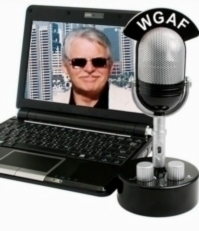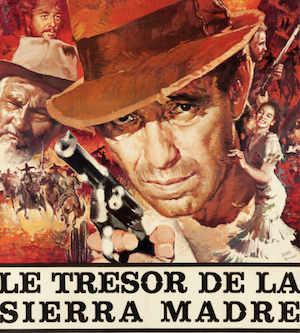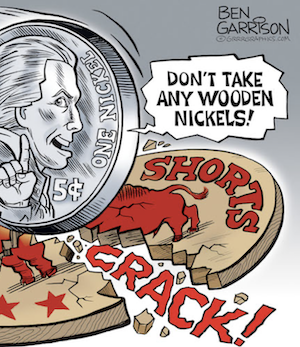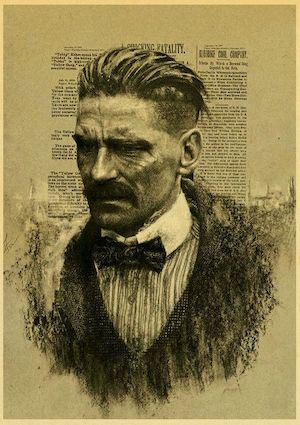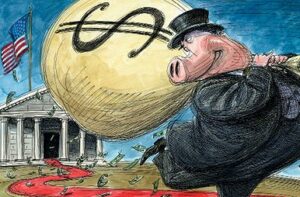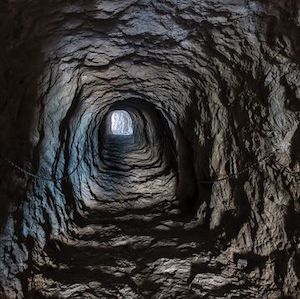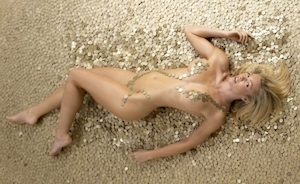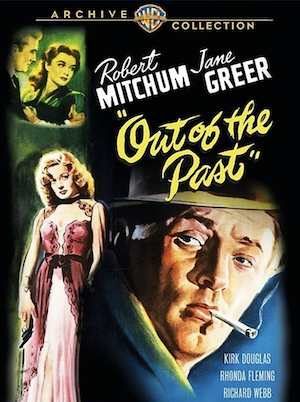The Bark Of Trees
 In the 1190s Genghis Khan extended a practice that changed the world: A new payment transaction system, paper money. This was introduced to the west via Marco Polo and is the primary root to the paper money we have today. The story of Marco Polo’s adventure can be found in the classic 1299 manuscript, “The Book of the Marvels of the World” by Rustichello da Pisafrom stories told by Marco Polo. Marco discovered that Genghis molded his empire through might, force and “the bark of trees”. It was the “bark of trees” that single handedly changed the way the west viewed payments and transactions.
In the 1190s Genghis Khan extended a practice that changed the world: A new payment transaction system, paper money. This was introduced to the west via Marco Polo and is the primary root to the paper money we have today. The story of Marco Polo’s adventure can be found in the classic 1299 manuscript, “The Book of the Marvels of the World” by Rustichello da Pisafrom stories told by Marco Polo. Marco discovered that Genghis molded his empire through might, force and “the bark of trees”. It was the “bark of trees” that single handedly changed the way the west viewed payments and transactions.
With the rise of algorithmic currency like Bitcoin we are once again faced with the challenges this brings and the number of psychologically, philosophically, emotionally and politically meaningful issues. It also brings fear. With the writings of Rustichello we can revisit just how shocking and revolutionary the “bark of trees” were as a payment transaction system. It was this writer reciting the direct memory of Marco Polo that started a revolution. In his writings we can see astonishment and fear over this new payment system. This revolution extends through to today and will continue on long after all of us have moved on. Along the way you and I will examine the same set of psychological, philosophical, emotional and political points to find meaning and understanding issues our ancestors faced in the mid 1200’s as “the bark of trees” found it’s first roots in Europe.
The Circle Has Been Closed
With Bitcoin and Litecoin there is a hard limit to the final number of coins. In Genghis’s epoch the hard limit was the might and force to all sides of the transaction to accept the value of the currency. This was fiat currency but it also was limited. In our epoch the new currency’s hard limits will have interesting effects on the increasing values.
The interesting thing is the circle has been drawn back. This all started in China in the 1190s. In 2013 it is China that has embraced the new currency and has just started to show how it will change everything. This quite understandably creates fear. People grasp to something and with Bitcoin it is “Tulip Mania”. This is an ill-informed “pop-history” dismissal based on inaccurate analogies and fear.
We Have Been Here Before
In this epoch History is a “dead” subject ignored by the vast majority of people I know in the tech world. The Silicon Valley is quite notorious for this position for a reason, Computer Science majors have only so much time in school and History is of apparent little value. This is rather short sighted as these very same people build companies. History will show this issue alone will cost losses of trillions of dollars.
The past holds a light to the future. The past is our guide. In all of the confusion there is clarity from our family as they have already walked this path and have stories to tell us. The unknown is always the basis of fear, but the unknown, is less unknown, with History.
We have been here before, it got us to this place. We built the world on the “Bark Of Trees”. Perhaps for better or worse the new world will be built on algorithms and it may take us very far. The past is prologue.
How the Great Kaan Causeth the Bark of Trees, Made Into Something Like Paper, to Pass for Money All Over his Country
Now that I have told you in detail of the splendour of this City of the Emperor’s, I shall proceed to tell you of the Mint which he hath in the same city, in the which he hath his money coined and struck, as I shall relate to you. And in doing so I shall make manifest to you how it is that the Great Lord may well be able to accomplish even much more than I have told you, or am going to tell you, in this Book. For, tell it how I might, you never would be satisfied that I was keeping within truth and reason! The Emperor’s Mint then is in this same City of Cambaluc, and the way it is wrought is such that you might say he hath the Secret of Alchemy in perfection, and you would be right! For he makes his money after this fashion.
 He makes them take of the bark of a certain tree, in fact of the Mulberry Tree, the leaves of which are the food of the silkworms – these trees being so numerous that whole districts are full of them. What they take is a certain fine white bast or skin which lies between the wood of the tree and the thick outer bark, and this they make into something resembling sheets of paper, but black. When these sheets have been prepared they are cut up into pieces of different sizes. The smallest of these sizes is worth a half tornesel; the next, a little larger, one tornesel; one, a little larger still, is worth half a silver groat of Venice; another a whole groat; others yet two groats, five groats, and ten groats. There is also a kind worth one Bezant of gold, and others of three Bezants, and so up to ten. All these pieces of paper are [issued with as much solemnity and authority as if they were of pure gold or silver; and on every piece a variety of officials, whose duty it is, have to write their names, and to put their seals. And when all is prepared duly, the chief officer deputed by the Kaan smears the Seal entrusted to him with vermilion, and impresses it on the paper, so that the form of the Seal remains printed upon it in red; the Money is then authentic. Any one forging it would be punished with death.] And the Kaan causes every year to be made such a vast quantity of this money, which costs him nothing, that it must equal in amount all the treasure in the world.
He makes them take of the bark of a certain tree, in fact of the Mulberry Tree, the leaves of which are the food of the silkworms – these trees being so numerous that whole districts are full of them. What they take is a certain fine white bast or skin which lies between the wood of the tree and the thick outer bark, and this they make into something resembling sheets of paper, but black. When these sheets have been prepared they are cut up into pieces of different sizes. The smallest of these sizes is worth a half tornesel; the next, a little larger, one tornesel; one, a little larger still, is worth half a silver groat of Venice; another a whole groat; others yet two groats, five groats, and ten groats. There is also a kind worth one Bezant of gold, and others of three Bezants, and so up to ten. All these pieces of paper are [issued with as much solemnity and authority as if they were of pure gold or silver; and on every piece a variety of officials, whose duty it is, have to write their names, and to put their seals. And when all is prepared duly, the chief officer deputed by the Kaan smears the Seal entrusted to him with vermilion, and impresses it on the paper, so that the form of the Seal remains printed upon it in red; the Money is then authentic. Any one forging it would be punished with death.] And the Kaan causes every year to be made such a vast quantity of this money, which costs him nothing, that it must equal in amount all the treasure in the world.
With these pieces of paper, made as I have described, he causes all payments on his own account to be made; and he makes them to pass current universally over all his kingdoms and provinces and territories, and whithersoever his power and sovereignty extends. And nobody, however important he may think himself, dares to refuse them on pain of death. And indeed everybody takes them readily, for wheresoever a person may go throughout the Great Kaan’s dominions he shall find these pieces of paper current, and shall be able to transact all sales and purchases of goods by means of them just as well as if they were coins of pure gold. And all the while they are so light that ten bezants’ worth does not weigh one golden bezant.
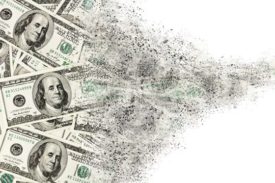 Furthermore all merchants arriving from India or other countries, and bringing with them gold or silver or gems and pearls, are prohibited from selling to any one but the Emperor. He has twelve experts chosen for this business, men of shrewdness and experience in such affairs; these appraise the articles, and the Emperor then pays a liberal price for them in those pieces of paper. The merchants accept his price readily, for in the first place they would not get so good an one from anybody else, and secondly they are paid without any delay. And with this paper-money they can buy what they like anywhere over the Empire, whilst it is also vastly lighter to carry about on their journeys. And it is a truth that the merchants will several times in the year bring wares to the amount of 400,000 bezants, and the Grand Sire pays for all in that paper. So he buys such a quantity of those precious things every year that his treasure is endless, whilst all the time the money he pays away costs him nothing at all. Moreover, several times in the year proclamation is made through the city that any one who may have gold or silver or gems or pearls, by taking them to the Mint shall get a handsome price for them. And the owners are glad to do this, because they would find no other purchaser give so large a price. Thus the quantity they bring in is marvellous, though these who do not choose to do so may let it alone. Still, in this way, nearly all the valuables in the country come into the Kaan’s possession.
Furthermore all merchants arriving from India or other countries, and bringing with them gold or silver or gems and pearls, are prohibited from selling to any one but the Emperor. He has twelve experts chosen for this business, men of shrewdness and experience in such affairs; these appraise the articles, and the Emperor then pays a liberal price for them in those pieces of paper. The merchants accept his price readily, for in the first place they would not get so good an one from anybody else, and secondly they are paid without any delay. And with this paper-money they can buy what they like anywhere over the Empire, whilst it is also vastly lighter to carry about on their journeys. And it is a truth that the merchants will several times in the year bring wares to the amount of 400,000 bezants, and the Grand Sire pays for all in that paper. So he buys such a quantity of those precious things every year that his treasure is endless, whilst all the time the money he pays away costs him nothing at all. Moreover, several times in the year proclamation is made through the city that any one who may have gold or silver or gems or pearls, by taking them to the Mint shall get a handsome price for them. And the owners are glad to do this, because they would find no other purchaser give so large a price. Thus the quantity they bring in is marvellous, though these who do not choose to do so may let it alone. Still, in this way, nearly all the valuables in the country come into the Kaan’s possession.
When any of those pieces of paper are spoilt – not that they are so very flimsy neither–the owner carries them to the Mint, and by paying three per cent, on the value he gets new pieces in exchange. And if any Baron, or any one else soever, hath need of gold or silver or gems or pearls, in order to make plate, or girdles, or the like, he goes to the Mint and buys as much as he list, paying in this paper-money.
Now you have heard the ways and means whereby the Great Kaan may have, and in fact has, more treasure than all the Kings in the World; and you know all about it and the reason why…
Written by Brian Roemmele and published by Go Medici ~ December 1, 2013

